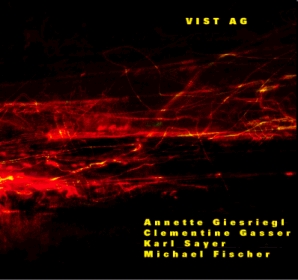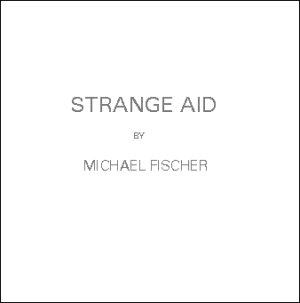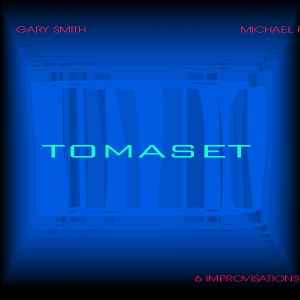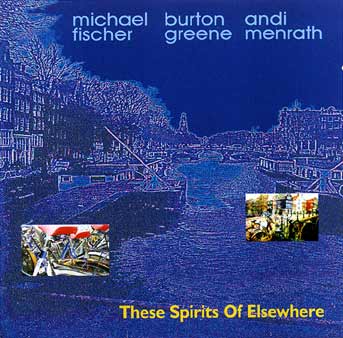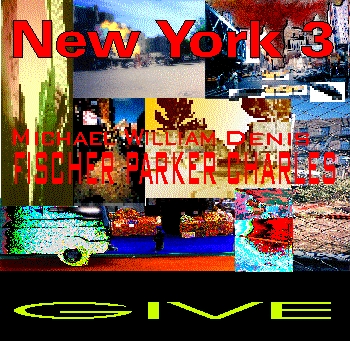recorded November
1997 in New York
released at Extraplatte / 1999 EX 383-2
W I E N 3
Michael Fischer, tenor- and sopranosaxophones, violin
Hermann Stangassinger, acoustic bass
Hannes Schweiger, drums, percussion
CD release: 'WIEN 3'
china
12:39
stir up 5:41
radical priorities 0:54
that's dialectic? yeah! 2:52 mp3
weill das eis bricht 2:36
sprightliness 5:50
ngo - never get overawed 8:10
necessary illusions 7:31
ulterior motive 8:44
you can't eat golden dumplings 6:41
miracle 3:43
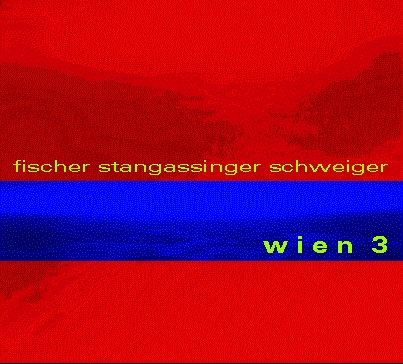
rec.
Sept. 2002 at ELAK Vienna/A
released at Extraplatte / 2002 EX 520-2
CD:
'FUSS'
rec.
May 2002 at WUK Vienna/A
the CD is available on request
WIEN
3
(Extraplatte
EX 520-2)
reviewed
in MUSIC MANUAL spring 2003, Vienna
by
Hans-Dieter Grünefeld
Instant
music often is self satisfied. The Trio WIEN 3 doesn't think in this
way. For Michael Fischer (ss, ts, v), Hermann Stangassinger (ac.b) and
Hannes Schweiger (dr, perc) the instant moment is an item of concentration,
from where musical inspiration is obtained.They start f.i.with short
motives or just a kind of bordun like in the piece "China", play a circle
around it, to evolve different kinds of melody fragments. Gradually
they approach higher energy levels, though constantly leaning on tonal
centers. "That's dialectic? Yeah!" - you only can agree with them. In
a subtle art they put the particles together into a lyrical tone-form
that even can swing like a nightclub song, "Weill das Eis bricht".The
field, where WIEN 3 is playing, spontaneity is an asthetic value, which
pays attention to timbre and formation.
reviewed
in THE WIRE 232 June 2003, London
by
John Cratchley
Viennese saxophonist and violinist Michael Fischer's last two recordings
- one solo, the other a duo with guitarist Gary Smith - precipitated
a move towards a combination of New Music and free Improvisation. This
trio recording with Hermann Stangassinger on double bass and Hannes
Schweiger on drums and percussion could be a culmination of that manoeuvre.
Fischer is a theorist for whom the need to intellectualise his music
acts as the goad or impetus to experiment further. As expressed in the
sleevenotes, part of the trio's manifesto sees them defining their work
as "an answer to the atrophy of human communication". In musical terms,
atrophy is taken to mean a reliance on repetitive and therefore inhibitive
forms. Well, the trio are in no danger of faltering on this precept.
They constantly shift their improvisational ground, while maintaining
a consistently high level of interaction. Fortunately, the theorist
in Fischer does not lead to the music's cerebral confinement. These
thoroughly accessible improvisations demonstrate considerable diversity
and lightness of touch. The trio's range allows them to explore a variety
of structures and forms, from blasting sax/bass/drums free Improv to
highly controlled pieces that showcase Fischer's pizzicato violin explorations
and Schweiger's percussive minutiae. The exploration of the possibilities
of new sounds is also high on the collective agenda. As a saxophonist,
Fischer has long experimented with multiphonic effects but this CD also
allows him free range with his violin. Particularly effective are his
slowly bowed and drawn out creaks that literally put the music under
stress and duress. The trio are most effective at creating diversity
of mood through what they describe as "new aggregate states and nonconformistic
sound associations". In other words, the combined instrumentation available
to this new trio allows them to examine new ground while reinforcing
some already existing conventions. "Ulterior Motive" is a slow blues
delivered with a marvellous slackness of drive reminiscent of Art Pepper,
which underlines the trio's ability to play straight ahead with conviction.
K
A N T O V I C
Michael
Fischer, tenor- and sopranosaxophones
Wolfgang Fuchs, turntabels, devices
Alex Wallner, guitar, prep. guitar
Andi Menrath, drums, percussion
With
Wolfgang Fuchs and Alex Wallner, the electronic side, and Michael Fischer
and Andi Menrath, the accoustic side, KANTOVIC showed a think tank of
experimental sound-laboratory, initially founded on interest and invitation
of both sides November 2000. One of the aims of KANTOVIC was to show
the essential points of intersection of electronic and accoustic improvised
music besides the "zeitgeist"-way, besides the mainstream tendencies,
to create a laboratory for creative works.
Fischer's and Menrath's international activities with their duo called
"WIEN 2" provided us with experiences from such collaborations as with
Irene Schweizer, Peter Kowald, Joe Williamson, Phil Durrant, John Edwards.
Fuchs and Wallner, known as "Das Fax-Mattinger" were involved in several
musical projects playing in conventional and commercial fields till
the increase of their reception of composed, new and free improvised
music made them change the way of thinking, feeling, hearing.
W
I E N 2
feat. Elisabeth Harnik
Elisabeth Harnik, piano
Michael Fischer, saxophones
Andi Menrath, drums
W
I E N 2
Michael
Fischer, tenor- and sopranosaxophones
Andi Menrath, drums
Michael about Andi:
The music he plays is uplifting, supporting and gives; it is bright,
motivating; strong ideas are part of the whole flow of ideas, density,
loosness,... No borders, only trying to support the musical essence
of the moment.
Michael about the music:
I feel there is always a tendency of facing borders and tabus, analyzing
and then discussing them musically.
Andi
about Michael:
He has these challenging long standing, intense ideas and surprising
changes; he’s open for everything that may happen, he never says "no";
playing with him makes me find a creative entrance to his soul.
Andi about the music:
I’m feeling very well at the unusual moments - trying to feature the
upper register of my instrument.
Founded 1999
M E N . A N D . P R O G R E S S
Michael Fischer, tenor- and sopranosaxophones
Ludwig Bekic, alto- and baritonesaxophones
Paul Urbanek, keys
Christian Weber, bass
Karl Sayer, bass
Gerhard Herrman, drums
Andi Menrath, drums
at Jazzfestival Wiesen, July 1999
CD release: 'MASS MEDIAS TRIUMPH'
Michael
Fischer, tenor- and sopranosaxophones
Ludwig Bekic, alto- and baritonesaxophones
Karl Sayer, upright-bass
Christian Weber, upright-bass
Gerhard Herrmann, drums
Andi Menrath, drums
Oliver Mochmann, guitar
Oliver Kent, piano
rec.
Sept. 1997 at WUK Vienna
released 1998, Extraplatte 363-2
Listen to MASS MEDIAS TRIUMPH: 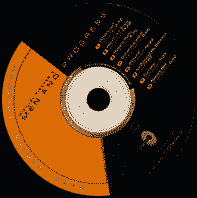
N E E D
Michael Fischer,
tenor- and soprano saxophones
Mik Fladerer, guitar, trumpet
MC: 'RESIDUUM'
rec. May 1997 in Vienna/A, released 1997, residual needs recordings
W I E N 4
Michael Fischer, saxophones
Karl Sayer, electric bass
Gerhard Herrmann, Andi Menrath, drums
F
I R E .O N.
T H E .R O O F agitation
and music, free improvising ensemble
Agnes Heginger, voice
Michael Fischer, saxophones
Colorandi, flute, percussion
Alexander Machacek, electric guitar
Gerhard Herrmann, drums
concept, directions, participation by Michael Fischer, Vienna 2000
W I E N 5
Michael Fischer, Ludwig Bekic, saxophones
Richard Koch, trumpet
Christian Weber, acoustic bass
Andi Menrath, drums
T
H E. T R A I N E E S.
O F.
T H E.
C O S M O S
'networking', free improvising ensemble
Jacqueline Schwarz, Elisabeth Schimana voice, electronic
Ludwig Bekic, Michael Fischer, saxophones
Christian Weber, Karl Sayer, acoustic bass
Gerhard Hermann, Andi Menrath, drums
concept, directions, participation by Michael Fischer
live and simultaneously as internet live stream
WUK, Vienna 1998
GO
GUITARS & THE. F R E E.
S P I R I T S. O R C H E S T R A
free acting collective coordinated by hand-signs
Michael Fladerer, Max Mayerhofer, Jil Y. Creek, electric guitars
Fredi Z. Jelinek, Thomas Berghammer, trumpets
Colorandi, flute, percussion
Agnes Heginger, voice
Alexander Borek, Michael Fischer, Walter "Tarzan" Lameraner,
Walter Gahr, saxophones
Andi Menrath, drums
in cooperation with the dance improvisation collectiv THE4
concept, conduction, participation by Michael Fischer
WUK Grosser Saal, Vienna 2000
V
O X . Q U I E T I S
. E T
. T
U M U L T U S
Improvised Music
ensemble for churches
Jacqueline Schwarz, voice
Michael Fischer, saxophones
Christian Weber, acoustic bass
M I C H A
E L .F I S C H E R .T
R I O
Improvised Music and compositions by Michael Fischer
Michael Fischer, saxophones
Karl Sayer, acoustic bass
Gerhard Hermann, drums
top
